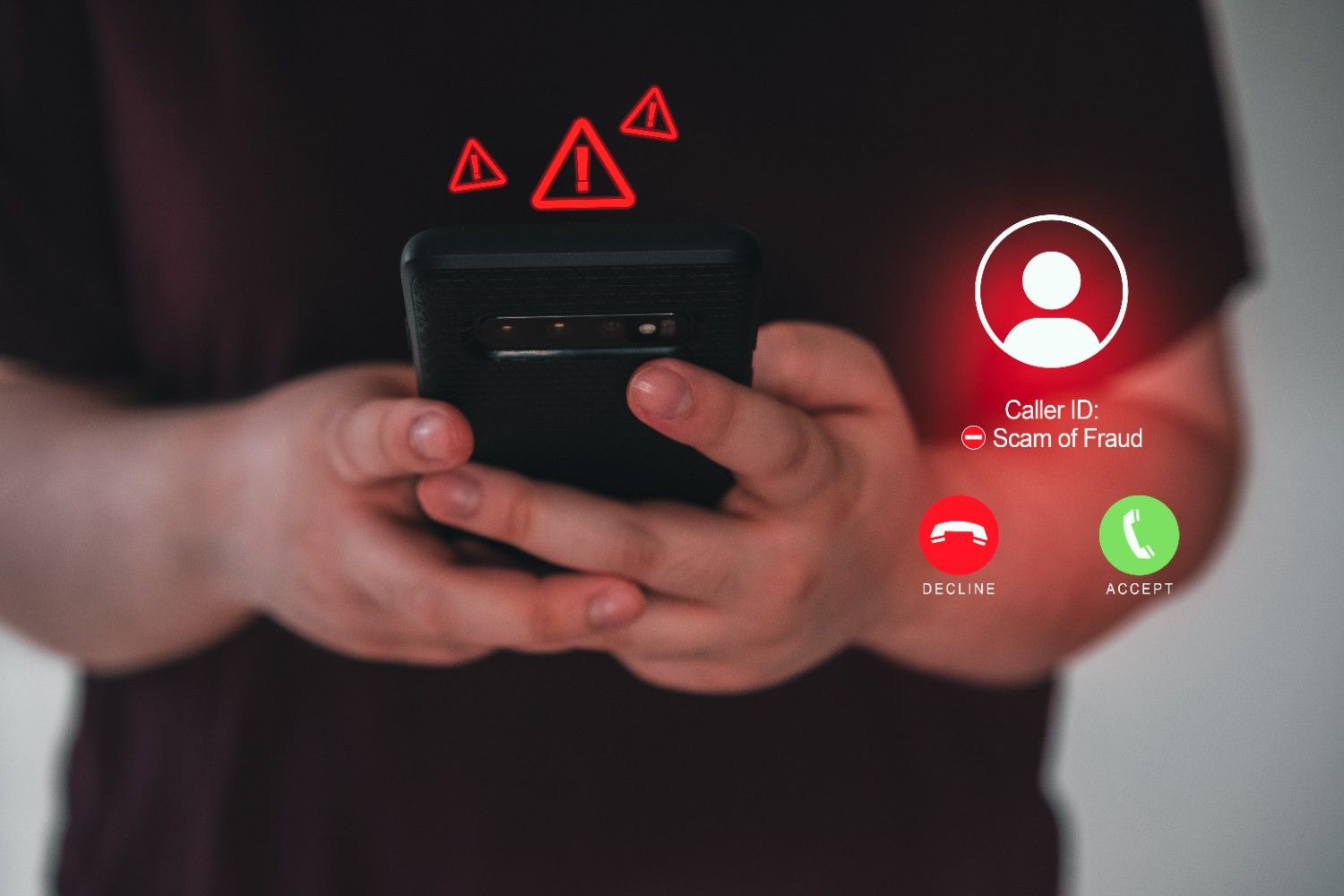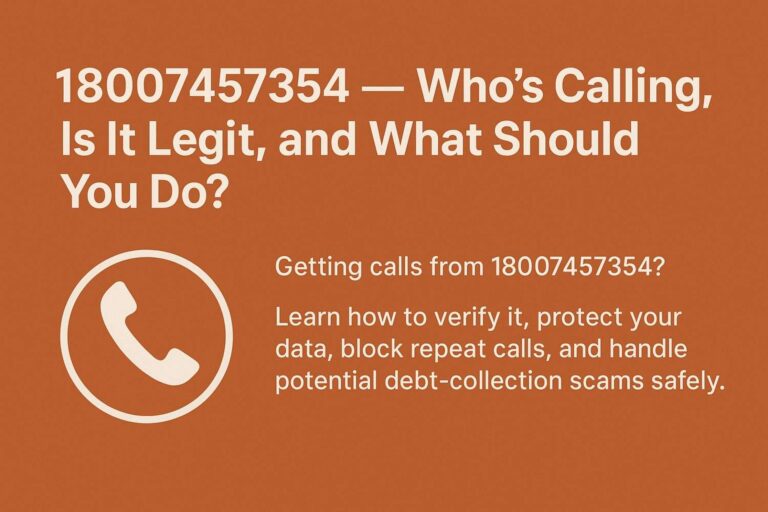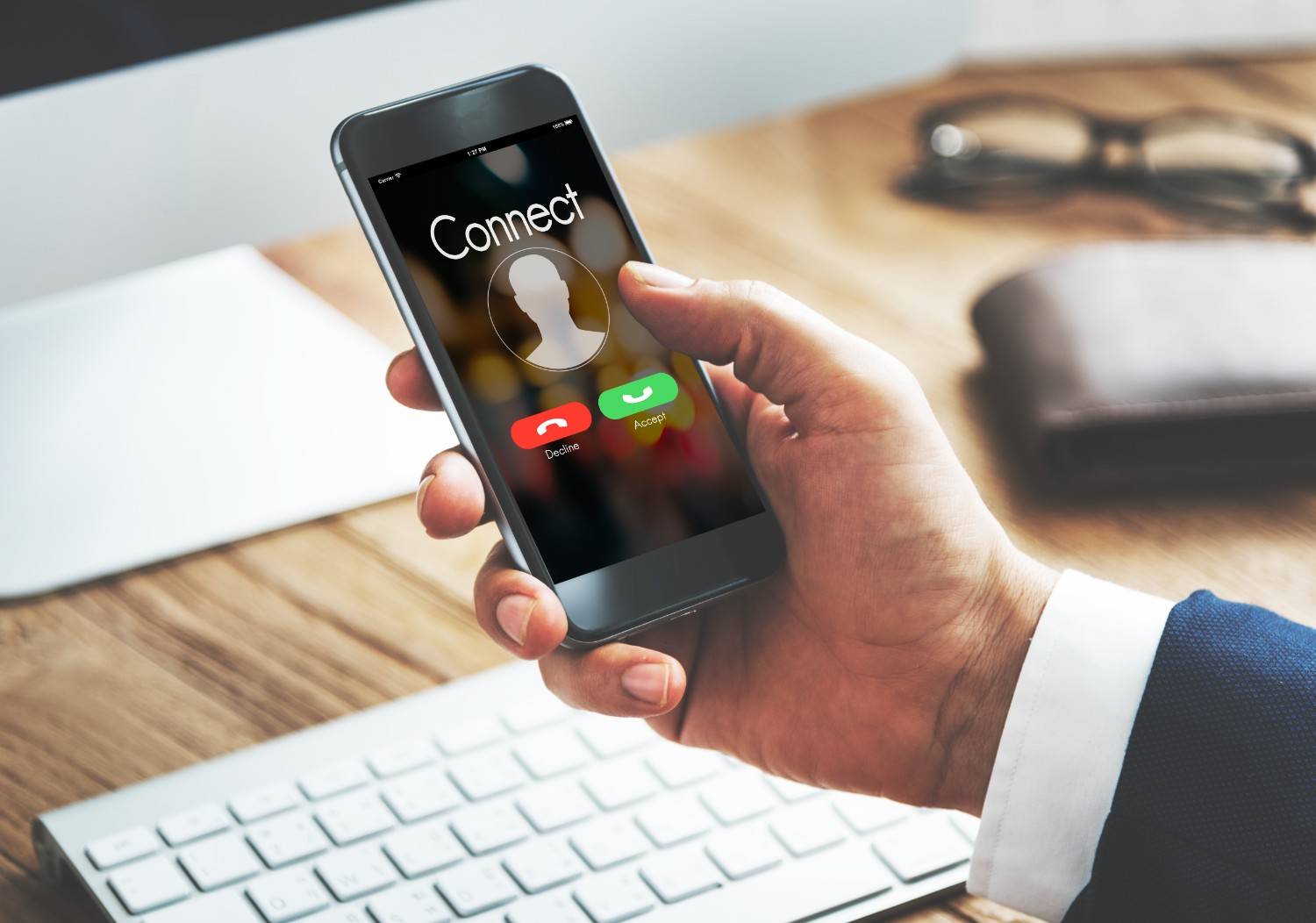If your phone flashed 18007457354 and you wondered whether to pick up, you’re not alone. I’ve seen a steady pattern of people reporting the same voicemail script: a recorded “Status” voice says they’re “following up on a letter” and asks you to call back 1-800-745-7354, with office hours listed in Central Time. Multiple call-report directories show near-identical wording and label the number as spammy or debt-collection related.
What is 18007457354 and who’s behind these calls?
Call-report sites consistently show the same prerecorded message: “Hello, this is Status… we’re calling to follow up on a letter… please return this call to 1-800-745-7354,” often with office hours and an option for Spanish. Many users say the caller won’t identify the specific company or debt on voicemail. That vagueness is a red flag and typical of broad collection campaigns. Some reports tie the callback workflow to DataSearch, Inc., a medical-debt collection firm based in San Antonio, TX.
Robocall-blocking services also show negative reputation and thousands of call events associated with the number, reinforcing that this is widely circulated and often unwanted.

Is answering 18007457354 safe?
Short answer: let it go to voicemail first. If you answer, don’t share personal data (SSN, insurance details, full DOB) until you verify the caller’s identity in writing. Why? Because legitimate collectors must provide validation information about any debt they say you owe. The FTC recommends getting the collector’s name, mailing address, and written validation before you engage or pay a dime. If they refuse, treat it as a red flag.
How do I verify a “debt follow-up” voicemail from 18007457354?
- Request written validation. Ask for the debt validation notice that lists the amount, creditor, and your rights. Under federal rules, collectors must supply this on request.
- Look up the company independently. If the caller claims to be DataSearch, Inc., independently check their official website and public profiles for published contact info, then call that number—not the voicemail’s callback—before discussing anything.
- Compare details. Real accounts should match your records (provider, dates, amounts). If the info is off—or they use pressure tactics—pause and escalate carefully.
What are my rights if 18007457354 is a debt collector?
- You can demand verification before paying.
- You can ask them to stop calling (send a written cease-communication request).
- They cannot threaten, harass, or mislead you about legal actions or arrest.
The FTC’s guidance lays out these basics clearly and is your best neutral reference.
How do I block or reduce calls from 18007457354?
- Use your carrier’s spam-filter features and enable silence-unknown-callers (iOS/Android).
- Report the number to the FTC and your state Attorney General if the conduct seems abusive or deceptive.
- Document everything (dates, times, recordings/voicemails). If you need to dispute or file a complaint later, your log is gold.
Why do these messages mention “we sent a letter”?
That line often appears in mass-dialer scripts: “we’re following up on a letter.” Many recipients say no letter ever arrived. That mismatch, plus non-specific details, is often cited in BBB complaints and call-report threads. If you didn’t receive official written notices (or they won’t send one on request), proceed with caution.
Frequently Asked Questions
1. Is 18007457354 a scam or a real collector?
Reports point to a debt-collection style robocall that’s frequently flagged as spam. Some users link callbacks to a real agency (DataSearch, Inc.), but the vague voicemail and mass-dial pattern mean you should verify independently and demand written validation before engaging.
2. They know my name. Should I be worried?
Data brokers and skip-tracing tools often match names to numbers, so name usage isn’t proof of legitimacy. Treat it as a data point, not validation. Ask for written proof and verify the company through official channels you find yourself.
3. What if I actually owe a medical bill?
You still have rights. Request the validation notice, check the original provider, and confirm balances with the provider directly. Don’t pay via pressure or unfamiliar portals. If it’s valid, negotiate a written payment plan you can afford.
4. How do I stop repeat robocalls from 18007457354?
Turn on device/carrier spam filters, block the number, and report persistent abusive behavior. If they’re a collector, a written cease-communication letter limits how they contact you (though it doesn’t erase a legitimate debt). Keep documentation.
How I’d handle a callback (step-by-step)
- Call only a verified number. If the voicemail says to ring 18007457354, don’t. Instead, find the company’s official phone on their website/BBB profile and call that.
- Get specifics in writing. Ask for the debt validation notice via mail or a secure portal, not just read to you on the phone.
- Cross-check with your records. Confirm date of service, provider, and amount—especially for medical bills. If anything’s off, dispute in writing.
- Protect your info. Until verified, don’t give SSN, full DOB, or payment details.
The bottom line on 18007457354
18007457354 shows a long trail of robocall-style “follow-up on a letter” voicemails and negative reputation on call-report tools. Sometimes these campaigns trace back to real collection agencies, but that doesn’t mean your alleged debt is valid—or that the caller handled it properly. Your play: verify in writing, call only confirmed company numbers, and keep your data safe. If it checks out, handle it on your terms; if not, block, document, and report.
Note: This guide uses public call-report directories and the FTC’s consumer advice for accuracy and current best practices.


